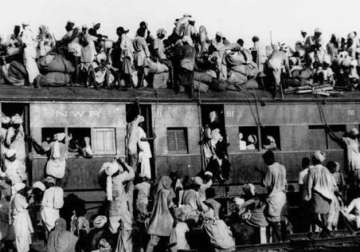New Delhi: Back in 1947, Pakistan's founder Muhammad Ali Jinnah sent Indian author Khushwant Singh a message to stay on in Lahore and become a High Court judge, an offer the latter declined and decided to move to Delhi.
“I drove on a totally empty road, blank road, all the way to Delhi. I didn't see a soul till I reached Delhi,” he told Manleen Sandhu before his death in March 2014 relating his personal experience of Partition.
“Jinnah sent a message to me through my father — he was his friend — to stay on in Lahore and become a High Court judge. I was a lawyer,” he said. “Bad times. No humanity at all ... After Partition I returned to Lahore many times. I had no venom against anyone,” he said shaking his head as he explained his decision to move amid the escalating violence.
4,000 hours of video
Khushwant Singh's story is among the nearly 2,000 filling over 4,000 hours of video recorded by citizen historians like Ms. Sandhu, 21, for the 1947 Partition Archive.
What began as a small grassroots effort to preserve the disappearing memory of Partition, at the University of California at Berkeley in 2011, has quickly spread across the globe to 157 cities where Partition witnesses reside.
Young, tech-savvy citizen historians train to record oral histories and spread out in their communities with their phones or any other recording device as part of what has become the largest known oral history collection of South Asian memories.
Today a majority of the stories come from India, Pakistan and Bangladesh, though many pour in from the diaspora spread across Europe, North America, West Asia and Australia. They are telling of how far refugees scattered in search of a stable life following Partition.
The Archive will begin releasing the stories for public viewing in 2017.
Latest India News
